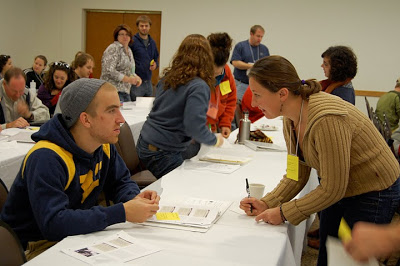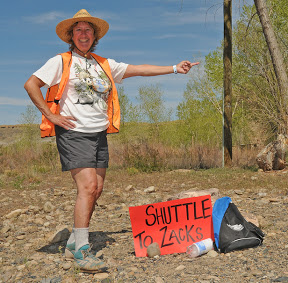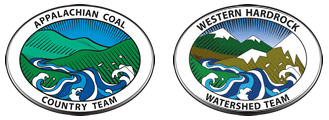Been wanting to include more youth in your organization? To hold a 5k race? To work with local businesses? Learn where to start and what to expect from 34 rural organizations that spent one year working to improve their volunteer recruitment, management and retention.

The second phase of the “Volunteers for Rural Watersheds” Research Project was designed to identify, test and document a variety of approaches to engaging volunteers in service to rural organizations. The first step was to identify practices or strategies used successfully by organizations within the Appalachian Coal Country Team (ACCT) and Western Hardrock Watershed Team (WHWT) networks.
Successful volunteer management practices were identified through informal interviews with watershed organization stakeholders during site visits and analysis of ACCT and WHWT Quarterly Reports. Quarterly reports, required for all OSM/VISTAs, capture their progress and accomplishments through narrative and quantitative reporting components. Through these means, 25 volunteer management practices were identified.
The next step was to transplant these 25 practices to other organizations that needed them. Through a formal application process, all ACCT and WHWT-partnering groups were given the opportunity to apply for and, if approved, test up to three practices. Applications were ranked and awarded based on the following criteria:
- Requested practice addressed a significant need for that group
- Group is capable of implementing the practice to the best of their ability
- Each of the 25 practices is tested by two separate organizations
Thirty-four different organizations were selected to test one, two or three trial practices. Twenty-one organizations tested only one practice, 12 tested two, and one organization tested three practices. Research partnerships spanned one to two years in which each site received mini-grants according to their level of participation.
These organizations submitted initial reports for their trial practices in January 2010 to document the progress of their initial planning and implementation efforts. Also, they worked with the ACCT Volunteerism Coordinator to select indicators to measure the impact of their practice over the coming year. These indicators were tailored to each trial practice and the site’s goals and intentions, ranging from the number of new volunteers recruited for an event to the average time duration of board meetings.
Midterm reports were collected in June 2010 to assess progress in implementing trial practices after six months of effort on the part of participating rural organizations. Groups were in every stage of implementation from planning to the final result. Some were recruiting volunteers for planning committees, picking dates and venues, or waiting on grant funds to buy needed equipment. Others were making final event arrangements, changing plans due to new obstacles, or continuing discussions on things like board development, meeting efficiency, and community outreach. After a winter of planning, many held events relevant to their trial practice, working with student athletes, local businesses, community service volunteers, and the Retired and Senior Volunteer Program to complete a variety of projects.
Final reports were collected in January 2011 to assess trial practices after 12 months of effort by participating watershed organizations. These reports were a detailed reflection of the entire year—the implementation of the practice, its applicability to the group and an evaluation of effectiveness based on indicators of success identified for each practice.
The successes, challenges and ideas compiled throughout this research phase are presented on this website as a suite of volunteer management options. We invite you to explore new methods of volunteer recruitment, management and retention through the case study accounts of each trial practice, replete with ideas on where to start and what to expect.

Explore the 25 practices selected as successful volunteer management strategies and the trial practices conducted by other organizations.
